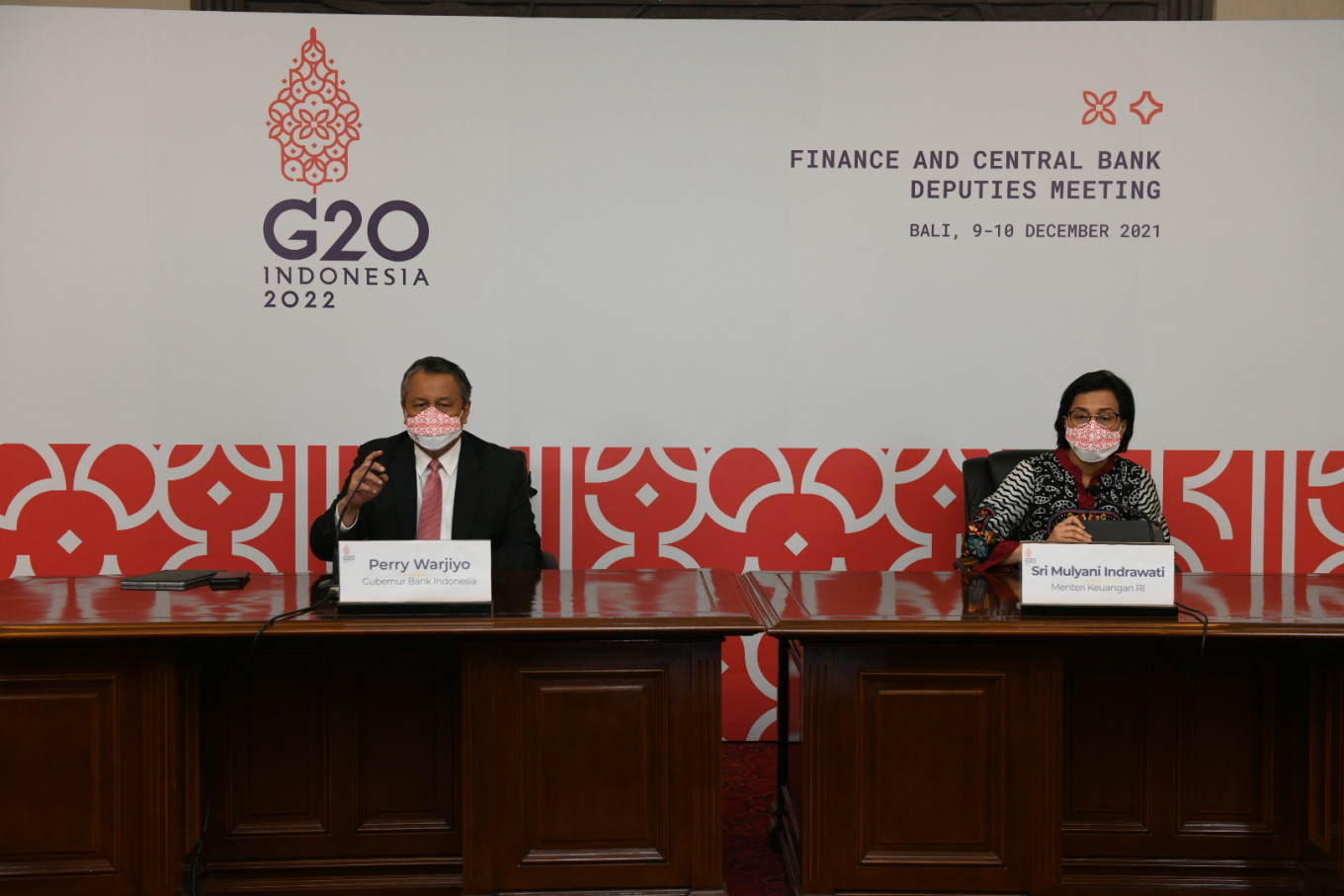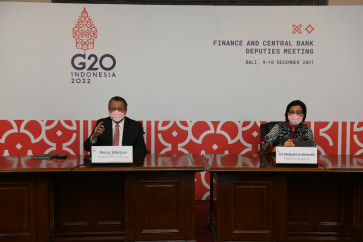Popular Reads
Top Results
Can't find what you're looking for?
View all search resultsPopular Reads
Top Results
Can't find what you're looking for?
View all search resultsWorking on the G20 international tax reform homework
A study (missingprofits.world) estimated that Indonesia lost US$2.47 billion in state revenue as multinational entities shifted their profit from the country.
Change text size
Gift Premium Articles
to Anyone
One of the biggest tasks Indonesia must resolve in its Group of 20 presidency is international taxation reform.
The completion of the Finance and Central Banks Deputies (FCBD) meetings in December, which is part of the country’s G20 presidency until it ends in late 2022, also leaves the same question: Can the mandate of the Two-Pillars Approach of Digital Taxes as a solution to a fairer international tax system be initiated? Could it be implemented at the end of Indonesia's G20 presidency in 2022 or will it just be mere jargon, like the Kyoto Protocol?
The two-pillar approach is an inclusive package framework initiated by 130 countries and released by the Organization for Economic Cooperation and Development (OECD) Secretariat on Oct. 12, 2020, and accepted by the G20 in July. This package is the implementation of the Base Erosion and Profit Shifting Action 1 Report, Addressing the Tax Challenges of the Digital Economy”.
The emergence of the two-pillar approach is the impact of the expansion of the digital industry, which does not have the need for an economic entity, especially for multinational companies. Therefore, companies could earn revenue without the need to be physically present.
These two important pillars need to be rolled out because the resulting business model as the impact of digitalization and globalization earns them so much revenue and costs very little in taxes. The goal, of course, is that the world's big multinational entities (MNEs) that earn a high income pay their fair share to each country where the company's goods/services are consumed. Something from which Indonesia has also suffered. A study (missingprofits.world) estimated that Indonesia lost US$2.47 billion in state revenue as MNE’s shifted their profit from the country.
The two-pillar approach consists of Pillar One, which provides taxing rights to market jurisdictions on part of the residual profits earned by MNE groups with an annual global turnover exceeding 20 billion euros ($22.5 billion) and 10 percent profitability before tax. Pillar Two requires MNE groups with an annual global turnover exceeding 750 million euros to pay at least 15 percent tax regardless of where they are headquartered or the jurisdictions they operate in.
Pillar One seeks to adapt the international income tax system to new business models through the alignment to profit allocation and nexus rules applicable to business profits. This pillar extends taxation rights to countries where residents actively and continuously participate in the taxpayer's business activities or that are addressed to such jurisdictions. That way, the taxation rights will also be given to the country from which the company derives its source of income, even though there is no entity standing there.



















